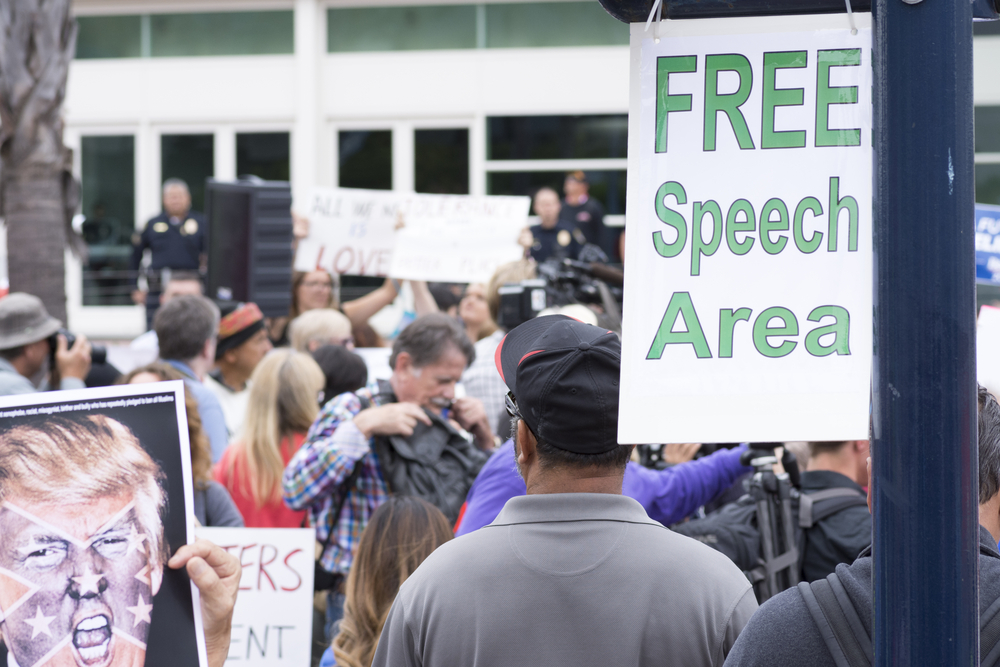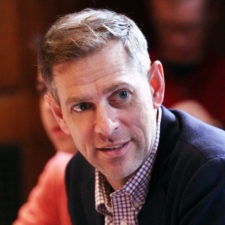Depending on your view, free speech in the United States is either beleaguered and endangered or far too expansive, even out of control. Ours is a society that censors books, forbids the honest teaching of unpalatable historical truths, cancels speakers, fires tenured professors for ordinary academic work, and forbids prayers at public school graduation ceremonies. Or computer-generated child pornography, hate speech, burning the American flag, and advocating violence (if unlikely or not imminent) are constitutionally protected, and public school football coaches are allowed pray at midfield after a game. Each of these examples is either very bad or very good, depending on your view. We are permissive to the point of license or restrictive and confining at the expense of liberty.
Of course, the interpretation and selection of these examples is hardly obvious. What seems an egregious limitation to one is commonsensical to another; unfathomable license might be judged as overly restrictive. One man’s meat is another man’s poison, as the old line puts it, or, more relevantly, as Justice Harlan suggested in Cohen v. California (1971), a landmark Supreme Court case on public obscenity, “one man’s vulgarity is another’s lyric.” As Harlan saw it, the pluralism of democracy required a principled silence on the part of the Court and the Constitution: “because government officials cannot make principled distinctions in this area … the Constitution leaves matters of taste and style so largely to the individual.” The competing battles of how to interpret free speech and free expression, including the apparent contradictions in the examples and interpretations given above, are natural to democratic systems, and it is the glory of liberalism in the tradition of John Stuart Mill, John Milton, and Thomas Jefferson to side with freedom of speech and thought rather than with their limitations, even though the result is widespread disagreement about the vulgar and the lyrical. Would we want it any other way? Who gets to decide? Whose view should be determinative, and based on what principled reason?
The glories of liberalism are not evident to Jordi Pujol, a professor of media ethics and media law at the Pontifical University of Santa Croce in Rome, as explored in The Collapse of Freedom of Expression: Reconstructing the Ancient Roots of Modern Liberty. Pujol notes, as do many, the tendency of liberalism to bracket reflections on the good and thus slide into mere proceduralism, hollowing out the substance needed to act in keeping with the common good, with an all-but inevitable slide into valuing speech for its own sake, no matter how offensive, obnoxious, hurtful, and transgressive. Mill’s experiments in living become experiments in speaking, lacking any principled means of evaluating the goodness or badness of speech, and inexorably privileging the outré and transgressive.
As Pujol employs the metaphor, freedom of expression is one of the most identifiable “buildings on the skyline of democracy,” constructed by the architects of liberalism, particularly Milton, John Locke, and Mill. The “liberal stones” of this building, however, are likely unsustainable. In part, the edifice of liberalism faces external threats, but it is the “deficiencies inherent in the European Enlightenment paradigm” that most interests Pujol. Those deficiencies include divorcing freedom from truth and goodness and thus sliding into moral relativism, a fictitious public neutrality, and a tolerance of evil. In our distorted condition, the idea that bad speech has as its solution “more speech” is a nonstarter, thinks Pujol, because that additional speech suffers from the same internal incoherence.
Pujol surveys “emblematic cases” of the irrationalities at play, including the widespread celebration of Charlie Hebdo’s offensive treatment of Islam, among that of other publications, campus censorship, and Facebook’s private censorship of public discourse. These chapters are each short, a survey, exploring how censorship and imposition of belief threaten conscience, but that liberalism mistakenly overlooks that words sometimes have “the force of actions.” It is not the case, Pujol claims, that offensive and hateful speech does not constitute harm, for human dignity is impeded. Liberalism has an undifferentiated view of speech, one that too sharply distinguishes speech from action and is bereft of a vision of the common good against which to judge the goodness or evil of speech.
In light of the common good, older traditions, such as Thomism, can tolerate some things it knows to be evil because proscribing those evils (or prescribing the virtues) by force of law might result in more or graver evil. Liberalism, by contrast, is left only with the tolerance of moral relativism and so is unable to judge that some speech is evil, let alone to determine when or how to allow lesser evils so as to avoid the greater. As a result, liberalism is almost fated not only to allow evil but also to celebrate it, as when Milton gleefully recommends reading the banned books, or when the liberal media insists Je suis Charlie despite its overt and intentional offensiveness.
Against this, schools of thought that include communitarians, feminists, and critical race theorists better recognize the contradictions of liberalism, including its invented, or novel, notion of tolerance and its artificial and enforced idea of the neutral public square. Neutrality is a fiction, smuggling in notions of anthropology, freedom, reason, and harm while claiming to avoid anything comprehensive or substantive, and in doing so cementing relativism as normatively true, which is contradictory, unfair, and illegitimate.
These critiques of liberalism, or at least of a certain anti-perfectionist kind of liberalism—think Rawls—are familiar. So, too, Pujol’s account of the European legal tradition’s comfort with hate-speech laws in the name of protecting human dignity compared with the American tradition’s hesitation to have the state define the acceptable limits of speech. Still, the problems remain: Who is to decide what is the substantive good?
The structure of the book limits Pujol’s persuasiveness, in my judgment. First, the book is composed of 20 chapters, plus an introduction and conclusion, and thus the chapters are relatively short. This is fine when it comes to describing Facebook and the question of misinformation, but slightly frustrating when the chapter is articulating liberalism and three or four competing schools. Each is given fairly brief attention. Second, Pujol writes in a style familiar to many in the social sciences and schools of communication—namely, to present argument through a kind of summary or restatement of another thinker, but when the favored thinker is summarized rather than defended, and when the favored thinker is placed at the end of a chapter, the argument comes across as conclusionary or asserted, and the other thinkers—in this case the theorists of liberalism—are not allowed to “argue back” or raise objections to the favored thinkers who end each chapter. Consequently, the book too often reads as a summary of schools of thought, with objections to liberalism appearing dispositive merely by fact of their articulation. This limits the persuasiveness of the book, to some extent, but also limits the dialogical possibilities of the argument. Rather than argument, counter, and response, the book reads as positions 1, 2, and 3, with 3 simply winning, even though 1 and 2 have responses to 3 and even though there are burdens of explanation the final position must face to meet its obligations.
In the end, the question of “Sure, but who decides what is good?” is not adequately addressed. The good, as well as visions of public reason and natural law, come off as merely intuitive, as well as somewhat overly simple to apply in conditions of pluralism and contested visions. Liberalism, for all its weaknesses and limits, recognizes that question—Who decides?—as important, even vital, for democratic governance, and while Pujol helpfully articulates limits and tensions within liberalism, it is not clear he has provided an alternative fully explained or defended.

